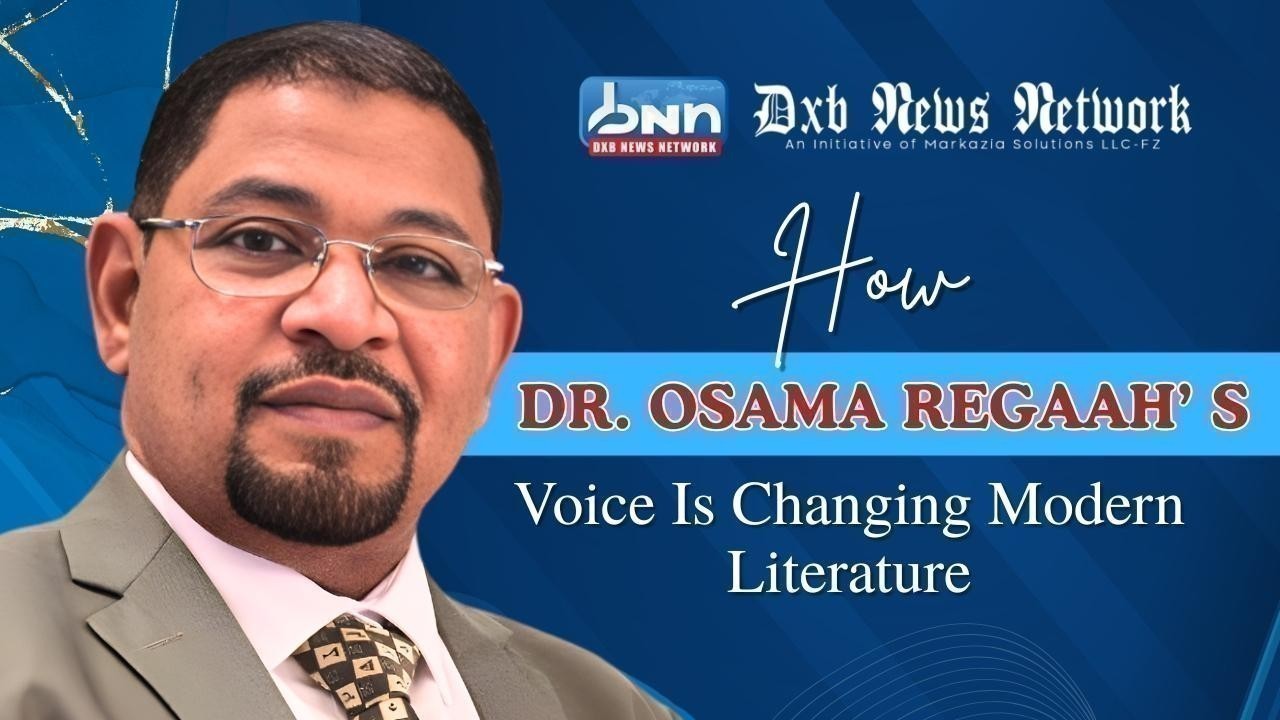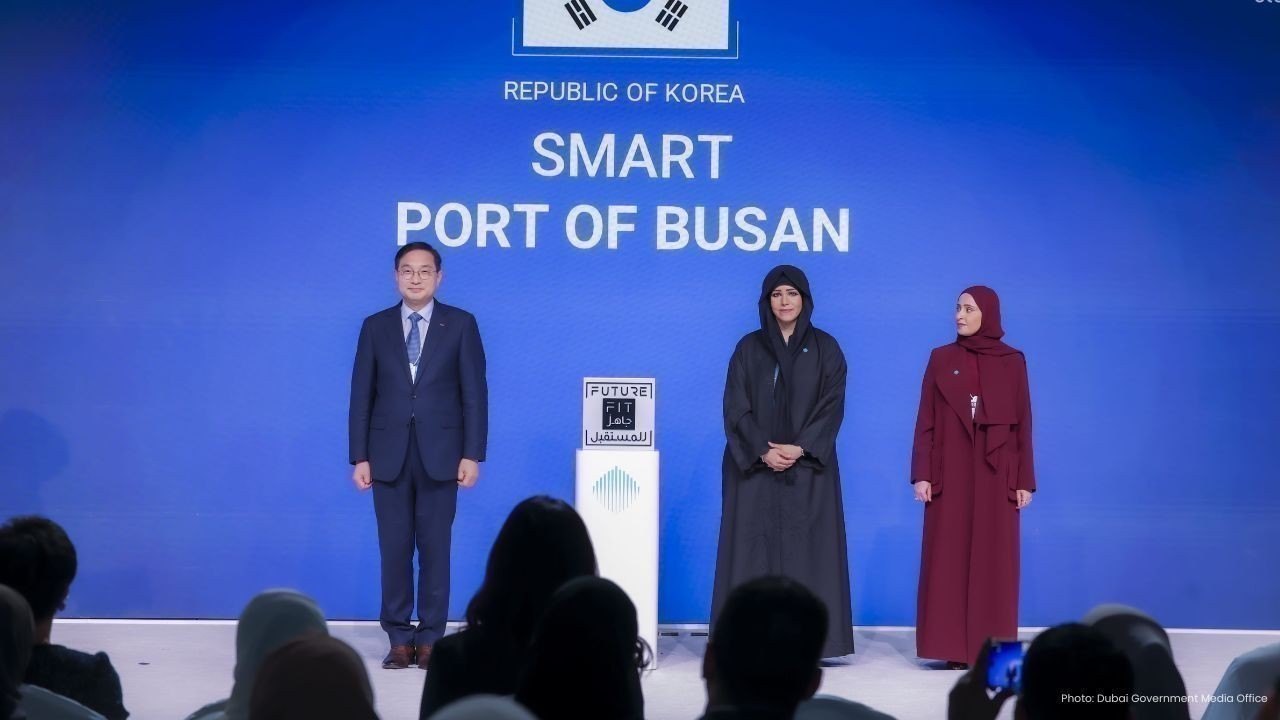
Post by : Sam Haleem
There are writers who tell stories, and there are writers who change the way stories are told. Among the latter stands Osama Regaah — an author whose words move with the rhythm of conscience and the precision of thought. In an age where literary trends often chase immediacy and noise, Regaah’s voice arrives as a quiet counterpoint — one that values contemplation over consumption, and humanity over spectacle. His presence in the modern literary scene is not defined by volume, but by depth; not by repetition, but by resonance.
Regaah’s literary journey began not as an escape from his legal career, but as an extension of it. The discipline of law taught him structure, clarity, and logic; literature taught him empathy, imagination, and freedom. Together, they gave him the language of balance — the ability to dissect reality while still perceiving its hidden poetry. This duality has become his signature, distinguishing his works from the ordinary and allowing him to stand among the new generation of Arab writers redefining narrative form and moral purpose.
In his novels, essays, and travel reflections, Regaah treats fiction as a philosophical laboratory — a space where questions of justice, morality, and the unseen coexist naturally. His most recent work, Transparent Ghost, exemplifies this approach. The novel breaks from linear storytelling to explore the spiritual realm known as Barzakh — the space between life and death — and the continuation of divine justice beyond worldly systems. Its characters do not vanish with death; they persist, reflecting on their lives and choices in a metaphysical landscape that blurs the line between the real and the symbolic.
Critics have called Transparent Ghost one of the boldest contributions to modern Arabic literature in recent years, and with good reason. It combines the precision of a legal mind with the sensitivity of a poet. Through the voices of its narrators — living, dead, and transcendent — Osama Regaah examines the eternal human struggle between guilt and redemption, illusion and truth, punishment and mercy. The novel’s language oscillates between lyricism and simplicity, carrying readers from the ordinary to the sublime with seamless grace.
This ability to fuse realism with spiritual introspection has given Regaah a distinctive place in contemporary Arabic narrative art. He belongs to a small circle of modern authors who refuse to separate the visible world from the invisible one. In his universe, a court verdict and a moral reckoning belong to the same continuum; a woman’s silence in the courtroom becomes a metaphor for society’s muted conscience; and justice itself is both a legal principle and a metaphysical pursuit.
Beyond Transparent Ghost, Regaah’s earlier works have already established him as a voice of emotional and intellectual honesty. Black Mamba explores the conflict between life and death through the psychological symbolism of a serpent. The Lost Melody and Midday Events play with time and perception, using fragmented narrative to reveal how memory shapes meaning. Plastic Flowers, translated into Persian, offers a philosophical reflection on love and self-interest in a rapidly changing world. Across these titles, what remains constant is the fusion of beauty and inquiry — literature not as ornament, but as revelation.
When asked whether writing for him is an artistic act or a personal awakening, Regaah responds, “It is both. Every sentence is a question I first pose to myself before offering it to the reader.” That statement captures the intimacy that readers feel in his prose. His works are not distant meditations on abstract themes; they are confessions of experience, shaped by his encounters with law, suffering, and compassion. The realism is not observational; it is lived.
His humanism extends beyond the page. In his advocacy and his art alike, he places the vulnerable at the center — women without legal support, the poor who lack defense, migrants whose struggles go unseen. These lives echo in his fiction, giving his stories a moral gravity that makes them impossible to forget. “In law, a woman without support is often the weakest link,” he once explained. “Literature gives me the means to grant her the strength of words.” Through that empathy, Regaah elevates literature from art form to social conscience.
Equally striking is his treatment of time and narrative voice. His novels often use what scholars call a “spiral structure” — stories that move backward and forward through time, creating a rhythm closer to memory than chronology. He favors multiple narrators rather than a single, omniscient voice, allowing truth to emerge as a mosaic rather than a monologue. This narrative architecture, rare in mainstream Arabic fiction, invites readers to participate in the construction of meaning rather than passively receive it.
Regaah’s language also stands apart for its precision and restraint. He is not interested in rhetorical excess or decorative eloquence. His style is transparent, rhythmically balanced, and charged with quiet emotion. When he employs metaphor, it is to reveal, not to hide. This stylistic clarity has drawn comparisons to early philosophical novelists, where every phrase serves both narrative and reflection.
In a literary world increasingly dominated by the quick and the digital, Regaah’s insistence on craftsmanship feels almost radical. He edits his manuscripts as though preparing legal arguments — not to constrain creativity, but to ensure every idea holds its weight. His attention to structure and rhythm gives his writing the same discipline that defines his professional life, proving that intellect and imagination need not be adversaries.
Internationally, his work has crossed borders with unusual ease. Translations of his books into Persian, Turkish, and Amharic have found new audiences in regions far beyond the Arab world. Readers in Iran, Turkey, and Ethiopia have connected with his themes of faith, justice, and moral conflict, affirming his belief that “humanity is the language that needs no translation.” It is this universality that continues to attract academics, translators, and critics who see in his work a bridge between cultures and philosophies.
In recent years, several of his novels have become the subject of academic research in Arab universities, explored not only for their literary innovation but for their ethical resonance. His merging of Sufi imagery, social commentary, and narrative experimentation has given younger Arab authors a new model — one that proves it is possible to be both traditional and modern, rooted in heritage yet open to global dialogue.
Regaah himself remains modest about his influence. “Awards are beautiful,” he says, “but to change a soul — that is the real glory.” His humility is matched by a quiet determination to keep writing stories that outlive the moment. He speaks of literature not as a career, but as a mission: “to humanize life and elevate the level of thought in an era that has grown harsh.”
As the UAE prepares to host the Sharjah International Book Fair this November, anticipation surrounds the official launch of Transparent Ghost. For readers and fellow writers, it is more than the debut of a new novel — it is the next chapter in a voice that continues to reshape how modern Arabic literature defines itself.
Through his fusion of intellect and imagination, law and lyricism, Osama Regaah has become a reminder that storytelling, at its best, is not only about what we read, but how deeply we understand ourselves while reading it. His work suggests that the written word, when anchored in truth and empathy, still has the power to transform — one conscience, one soul, and one sentence at a time.

Trump Team Claims US-India Trade Deal Is Done, Details Awaited
Trump officials say the US-India trade deal is final, cutting tariffs and boosting US exports, but n

UN Mission to Monitor Ceasefire in Eastern DR Congo: Qatar
Qatar says the UN will send a mission to eastern DR Congo to monitor a permanent ceasefire after rep

Sheikha Latifa Honours 3 Global Projects with Future Fit Seal
At WGS 2026, Sheikha Latifa awarded the Global Future Fit Seal to Albania, Korea and Singapore proje

Winter Skin Care: 10 Hydrating Drinks That Give Natural Glass Skin Glow
Learn how simple winter drinks keep your skin hydrated reduce dryness and support a natural glass sk

10 Songs That Carry the Same Grit and Realness as Banda Kaam Ka by Chaar Diwari
From underground hip hop to introspective rap here are ten songs that carry the same gritty realisti

PPG and JAFZA Launch Major Tree-Planting Drive for Sustainability
PPG teams up with JAFZA to plant 500 native trees, enhancing green spaces, biodiversity, and air qua

Dubai Welcomes Russia’s Largest Plastic Surgery Team
Russia’s largest plastic surgery team launches a new hub at Fayy Health, bringing world-class aesthe

Winter Skin Care: 10 Hydrating Drinks That Give Natural Glass Skin Glow
Learn how simple winter drinks keep your skin hydrated reduce dryness and support a natural glass sk

Why Drinking Soaked Chia Seeds Water With Lemon and Honey Before Breakfast Matters
Drinking soaked chia seeds water with lemon and honey before breakfast may support digestion hydrati

Morning Walk vs Evening Walk: Which Helps You Lose More Weight?
Morning or evening walk Learn how both help with weight loss and which walking time suits your body

What Really Happens When You Drink Lemon Turmeric Water Daily
Discover what happens to your body when you drink lemon turmeric water daily including digestion imm

DXB News Network Presents “Ctrl+Alt+Wim”, A Bold New Satirical Series Starring Global Entertainer Wim Hoste
DXB News Network premieres Ctrl+Alt+Wim, a bold new satirical micro‑series starring global entertain

High Heart Rate? 10 Common Causes and 10 Natural Ways to Lower It
Learn why heart rate rises and how to lower it naturally with simple habits healthy food calm routin

10 Simple Natural Remedies That Bring Out Your Skin’s Natural Glow
Discover simple natural remedies for glowing skin Easy daily habits clean care and healthy living ti

Mattel Revamps Masters of the Universe Action Figures for Upcoming Film
Mattel is set to revive Masters of the Universe action figures in sync with their new movie, ignitin